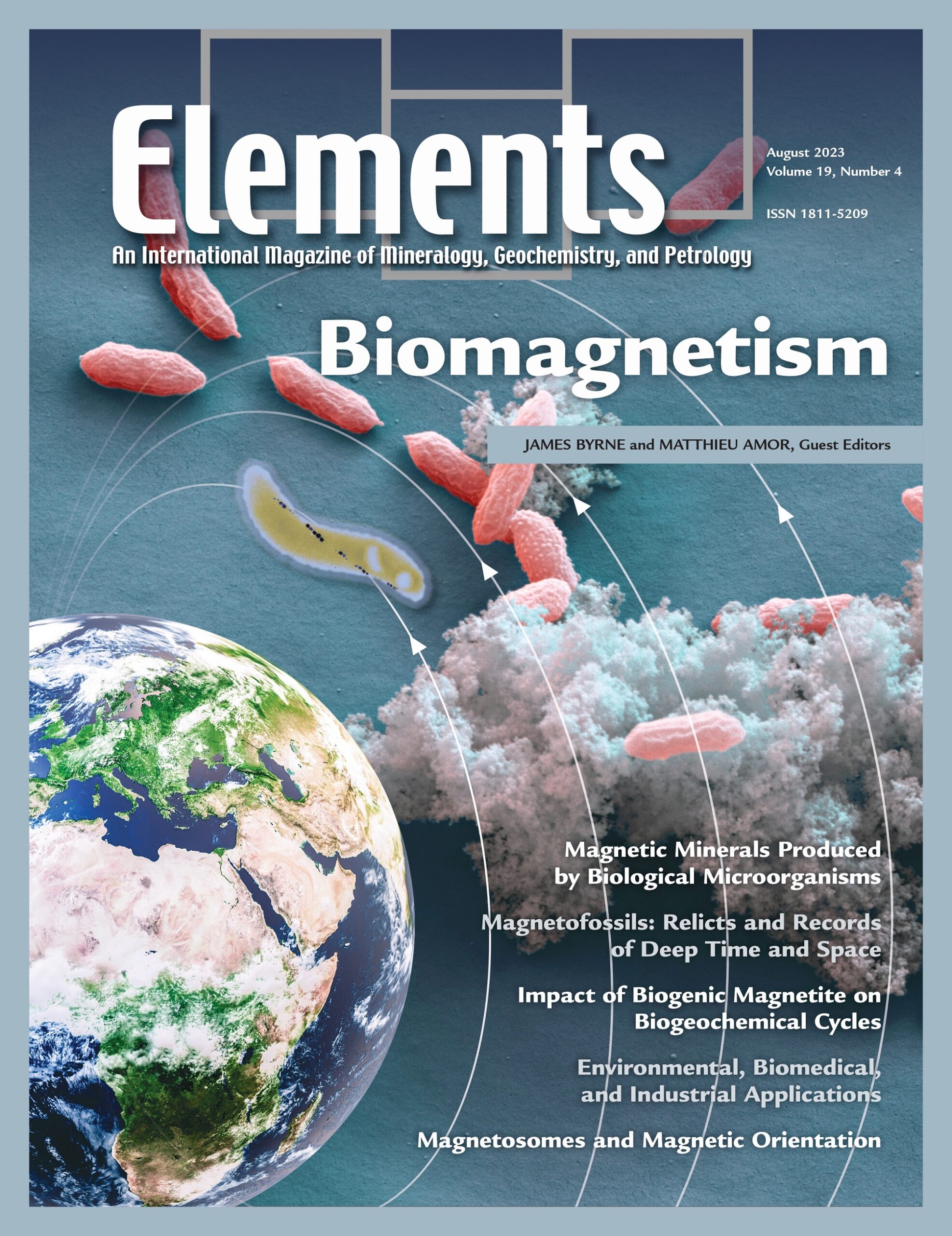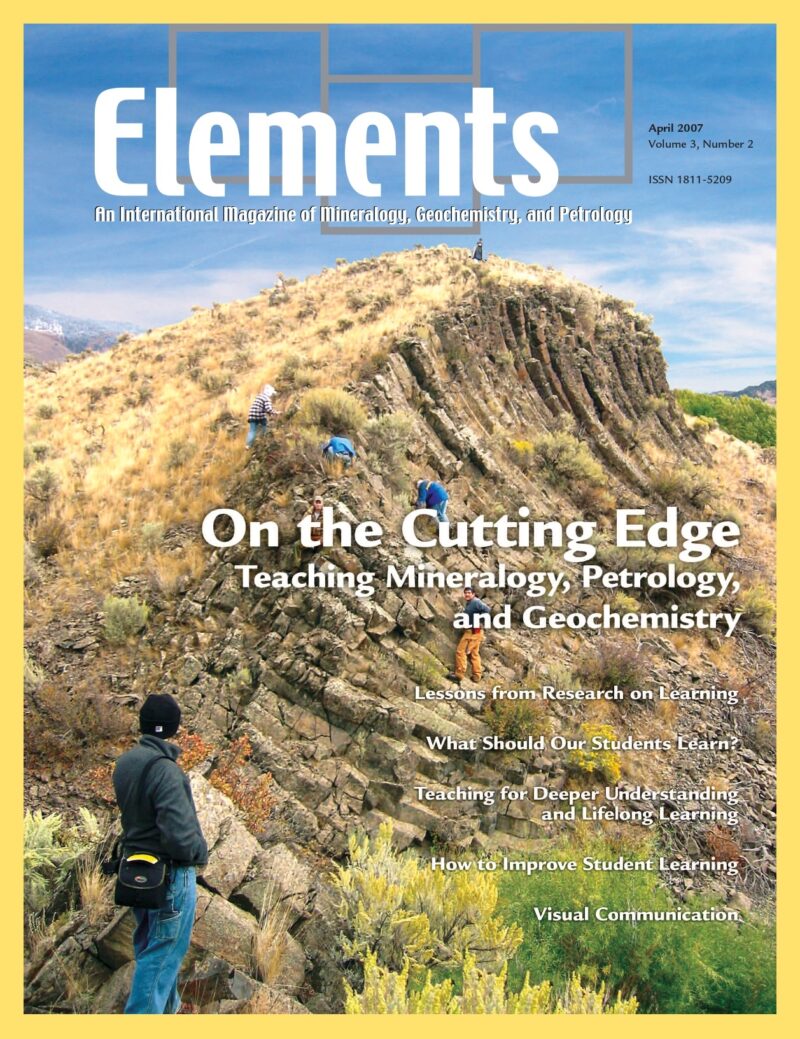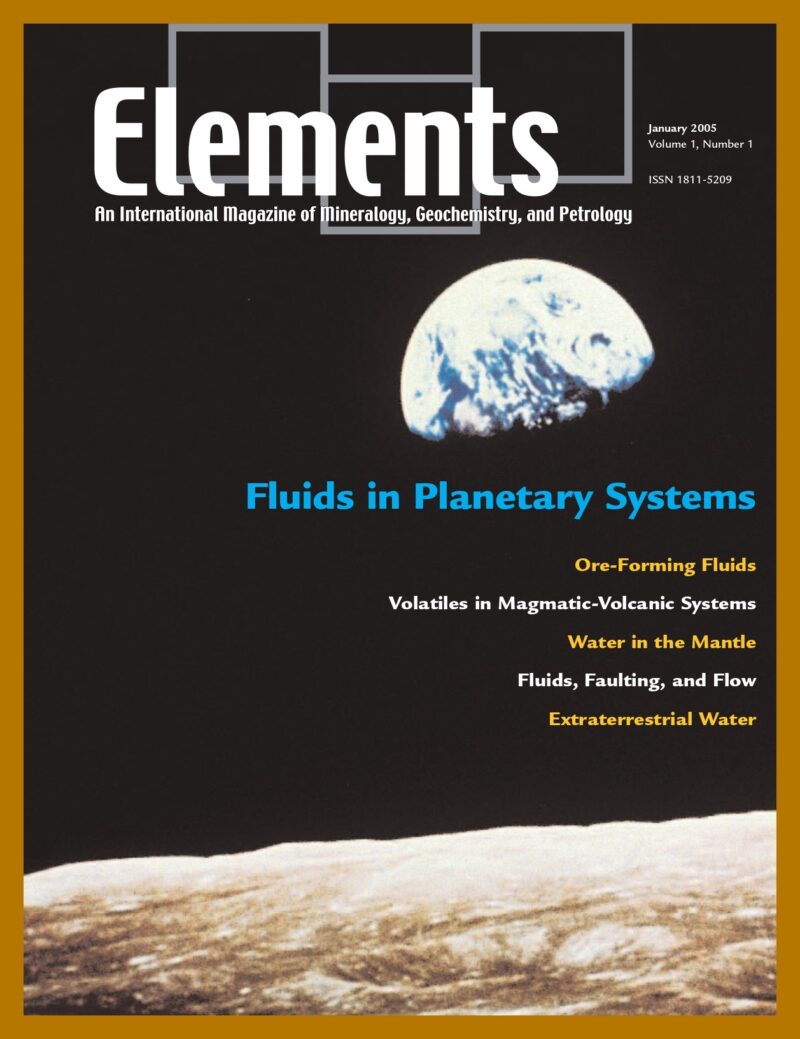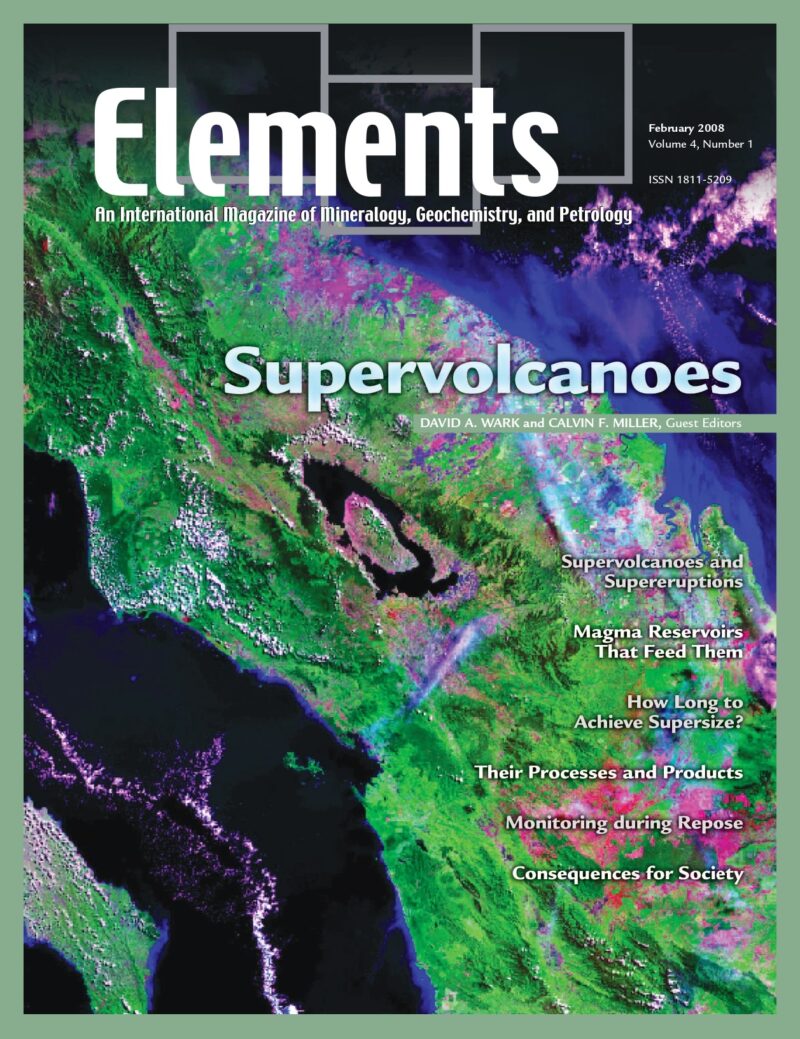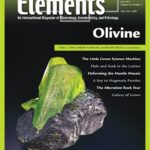
Olivine, June 2023, Vol. 19, No. 3
June 28, 2024
Elements Joint Society Calendar (2025–2026)
July 17, 2024Biomagnetism, August 2023, Vol. 19, No. 4
$20.00
In this thematic issue of Elements, we look into biomagnetism and the production of magnetic minerals by microorganisms. In popular culture, this may have supernatural connotations; however, in reality, there are many microscopic biological organisms possessing magnetic behaviour owing to their formation of magnetic nanoparticles (MNP) such as magnetite (Fe3O4), maghemite (γ-Fe2O3), and greigite (Fe3S4).
Biomagnetism
August 2023, Vol. 19, No. 4
In this thematic issue of Elements, we look into biomagnetism and the production of magnetic minerals by microorganisms. In popular culture, this may have supernatural connotations; however, in reality, there are many microscopic biological organisms possessing magnetic behaviour owing to their formation of magnetic nanoparticles (MNP) such as magnetite (Fe3O4), maghemite (γ-Fe2O3), and greigite (Fe3S4). We look broadly at the relationship between biogenic MNP formation and biomagnetism: focusing on the mechanisms responsible for these minerals by bacteria; seeking to address whether MNP hold clues to the evolution of life on Earth, and potentially beyond; investigating the contribution of biomagnetism to the biogeochemical cycling of iron; considering the potential application of MNP for industrial remediation; and probing the presence of MNP in multicellular prokaryotes and eukaryotic organisms.
Why You’ll Love Elements Magazine:
- Expert Contributors: Articles written by renowned researchers in the field of geoscience.
- Engaging Content: Join a community of readers who are passionate about Elements.
- Exceptional Quality: Each issue is printed on high-quality paper with stunning visuals and detailed illustrations that bring complex scientific concepts to life.
Order your copy of the August 2023 issue of Elements magazine today and explore biomagnetism.
Related products
-
On The Cutting Edge: Teaching Mineralogy, Petrology, And Geochemistry, April 2007, Vol. 3, No. 2
$20.00New advances in research on learning have important implications for teaching mineralogy, petrology, and geochemistry. Effective instructional practices are increasingly student centered, address diverse student learning styles, and employ a variety of active-learning strategies.
-
Fluids in Planetary Systems, January 2005, Vol. 1, No. 1
$20.00Water and other geofluids play an important role in the geochemical and rheological evolution of the Earth and other bodies in the solar system. These fluids are responsible for the formation of hydrothermal mineral deposits, affect eruption behavior in volcanic systems and the geophysical properties of the mantle, and significantly affect the way in which rocks deform and fracture.
-
Supervolcanoes, February 2008, Vol. 4, No. 1
$20.00Explosive super-eruptions from large volume, shallow magma systems lead to enormous and devastating pyroclastic flows, the formation of gigantic collapse calderas, and deposition of volcanic ash over continent-sized areas. Recognition that future eruptions from these “supervolcanoes” will undoubtedly have severe impacts on society—and perhaps on life itself—has led to recent public and media interest.

